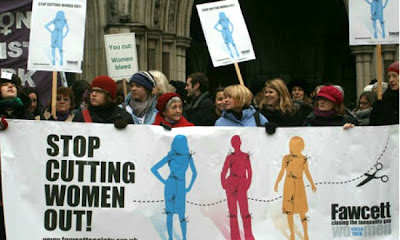Simon Jenkins (The Guardian, Wednesday 26 November, 2014), as he suggests in his article advocating “Helicopter Money” by citing Keynes, is recommending a form of Keynesianism, but the EU and the Tory party want nothing to do with it.
Keynes, together with our rulers’ fear of communism spreading west, gave us the 30 odd years of post war satisfaction with “welfare capitalism”, “one nation Toryism” and “social democracy”. The world’s capitalists did not like it, because their greed makes them resent losing any of “their money” unnecessarily, and they are evidently not bright enough as a group to realise that they were actually doing well themselves out of it. As soon as their fear of communism went, they decided to return to their old authoritarian ways, having followed the US in making suitable preparations for it throughout the Golden Post War Age.
Hitler and then FDR were early to recognise the value of Keynesianism.
Ever since the credit crunch the continent has been suffering what Keynes called a classic liquidity trap. There is too little money around and thus a chronic shortage of demand. People have too little to spend, which means shops close, supplies dry up and no one invests.(S Jenkins)
Hitler solved it and got Germans working again by building infrastructure that would be needed in the war he planned, and the military to effect it. Western capitalists helped him do it, expecting him to show his gratitude by attacking the USSR, not the west. FDR invented the New Deal which also used public works to get people back into employment.
It works. Money need not be put into everyone’s bank accounts, but paid as wages to those being employed rather than out of work. Keynes showed that every pound put in at the grass roots was spent and spent again—there was a multiplier effect. Ian Duncan Smith has exactly the opposite policy in trying to stop people from receiving welfare benefits, forcing down demand from the unemployed and badly paid. The point is, that people need to spend in any form of capitalism that does not exclude a deprived underclass from the social benefits of civilization.
What saved Britain was George Osborne not practising what he preached.
Again, as Jenkins says, the only way that Osborne has given his austerity policy an illusion of success is by furtive Keynesianism. Why this persistent idiocy?
Perhaps they are idiots. Perhaps they are not idiots but are preparing for a society in which a super class will live in luxury, served by robots serviced by a small class of technicians, and everyone else will have to scratch a probably criminal living among the underclass. Or perhaps they want an intermediate state in which most of us are reduced to that underclass which will serve the luxurious rulers by cutting out any form of Keynesianism and making them fight for the few jobs available, while an authoritarian state keeps them in check. Umm! Well that is where we are now.
Yet versions of helicopter money (HM) are now emerging into public debate.
John Muellbauer, professor of economics at Oxford, points out that, as existing policies to revive Europe’s growth have faltered, “proposals for distributing money directly to citizens have been quietly gaining traction among critics of orthodox central banks—QE for the people”.
The commentator Anatole Kaletsky points out that if the £375bn of QE had gone to private bank accounts rather than to buying bonds from banks, it would have meant £24,000 per British family. This would have transformed the demand economy.
Keynes did not propose, so far as I know (but I am not an economist), giving away money to everyone, and even socialists do not expect to get something for nothing. He saw his proposal working by creating public sector jobs, which allow fresh government money to circulate boosting private industry (capitalism) as it circulates. It could not therefore have been seen as a handout and so a “moral hazard”. No one is getting “cash they have not deserved”.
Jenkins rightly says the EU and the ECB “are in a line of descent from those who sealed Europe’s fate with the 1919 Treaty of Versailles, the Great Depression and the 2008 credit crunch”. But presumably they have a plan like those already mentioned, the last of which it seems to be. The real purpose of the austerity brigade is to impoverish ordinary people, making them compete viciously for the limited work available in an increasingly automated society and thereby reducing labour costs, while redistributing wealth via quantitative easing and the booming stock market into the hands of the super rich.
It is a plan that is working for them but democracy is a nuisance, so neither the EU nor the USA is democratic, and authoritarianism, fed by bogus fears of “extremists” (extremists are, of course, “terrorists” our rulers surmise!) is on a sharp rise.
The next government could use traditional Keynesianism to stimulate the economy by building houses, restoring the NHS and the civil service, funding it largely by taxes on the rich like stiff income tax, and a wealth tax, together with borrowing in the knowledge that once the economy grows then so will taxation and so a carefully planned stimulation package would pay for itself. Oh, and get out of the EU and its military arm, NATO!











